Nurturing innovation: the real estate of life sciences incubators in Europe
/Incubator_names_in_a_colourful_grid.jpg)
European life sciences incubators provide flexible spaces, specialised equipment, and essential support services; they also foster innovation through strong academic and industry connections, funding opportunities, and collaborative environments.
Definition of incubator
Life sciences incubators empower entrepreneurs, academia, and early-stage companies to develop innovative products and solutions. They provide suitable spaces (often shared and on flexible terms), access to specialist equipment, and additional incubation services. While "incubator" sometimes refers to organisations or programmes, for our purposes, it must include a physical space.
Incubators are commonly located on science parks, university campuses, research institutes, or within innovation districts. They may also be found within large company facilities (e.g., Bayer and J&J) or converted industrial spaces. Some are part of wider networks, such as Kadans Science Partner or Superlab Suisse. They can be situated in city centres, suburbs, or out-of-town locations. While almost all incubators are housed in buildings, repurposed shipping containers have also been used.
A diverse sample of 20 incubators were selected in Europe:
1 = ARC West London - London UK | 2 = Bio4Dreams - Milan Italy| 3 = Bioinnovation Hub (BiH) - Oxford UK| 4 = BioLabs - Heidelberg Germany| 5 = BioVille - Diepenbeek Belgium| 6 = Birmingham Research Park - Birmingham UK| 7 = Cosymbio - Barcelona Spain| 8 = Deeplabs|MaSID - Madrid Spain| 9 = FUHUB - Berlin Germany| 10 = Genopole - Paris France| 11 = GO:IN - Potsdam Germany| 12 = IZB - Munich, Germany| 13 = Life Science Park - Krakow Poland| 14 = NovaUCD - Dublin Ireland| 15 = Oslo Cancer Cluster Incubator - Oslo Norway| 16 = Superlab Suisse - Lausanne Switzerland| 17 = Sycamore House - Stevenage UK| 18 = Symbion - Copenhagen Denmark| 19 = Umeå Biotech Incubator (UBI) - Umeå Sweden| 20 = YES! Delft - Delft Netherland
Common features of incubators
Whatever the location, there are certain shared characteristics among incubators:
Access to advanced facilities: most incubators provide laboratories equipped with specialised equipment and office space. If certain equipment is not available within the incubator, it may be nearby.
Strong academic and industry connections: leading incubators have strong ties to academic institutions and industry partners, facilitating technology transfer and collaborations. For example, IZB in Germany is connected to Ludwig Maximilian University and the Max Planck Institutes.
Support services: incubators offer services such as business development, funding assistance, mentorship, and legal advice.
Networking and community building: incubators create collaborative environments for startups to network with peers, mentors, and industry experts. Events, workshops, and conferences facilitate this. The layout often fosters collaboration and community, with small private spaces alongside large communal areas.
Funding opportunities: incubators assist startups in securing funding through pre-seed and seed funding programs, grants, and connections with venture capitalists. Sometimes, the incubator operator may take an equity stake in a startup.
Modular and flexible design: spaces are designed to be modular and flexible, allowing startups to scale their operations as they grow. Units can start as small as 10 sq m (110 sq ft), suitable for early-stage companies needing minimal space.
Space comes in different sizes in incubators
Shared amenities: incubators often offer shared resources such as core facilities, specialised equipment, and technology platforms that startups can access without significant capital investment. These shared amenities reduce costs and lower the barriers to entry.
Roeland Buckinx of Health Campus Limburg tells us that the best locations are those that offer flexibility and scalability to meet the evolving needs of startups. His incubator BioVille includes a variety of workspaces such as flex spaces, private offices, and specialised lab areas. The optimal locations depend on the specific requirements of each startup, with some preferring the communal atmosphere of shared spaces and others needing the privacy and security of dedicated offices or labs.
Some incubators are 100 per cent dedicated to life sciences: All twenty incubators in our sample host life sciences startups, with 60 per cent focusing exclusively on life sciences. Others have a broader remit, including "science" or "tech." When life science is combined with another field, it is often aeronautics, green tech, or robotics.
Different types of space within an incubator: Incubators divide their space among labs, offices, and collaboration areas. For instance, Cosymbio Labs in Barcelona allocates 33 per cent of its space to labs, 42 per cent to offices, and 25 per cent to collaboration areas. Lab and office spaces can be shared or dedicated, while collaboration spaces are inherently shared.
Lease / licence terms for startups in incubators
Startups' real estate needs can be fluid, with early-stage companies typically needing smaller flexible spaces and later-stage companies requiring larger build-to-suit spaces. Two main leasing models are evident:
Flexible licence: used by early-stage and pre-Series A companies, this model functions as a licence with full-service amenities, often packaged as a membership with a bundle of benefits (like WeWork).
Short-term lease: attractive to companies seeking Series A financing, this model involves a lease with capital-intensive services like common lab support areas and equipment.
The flexible licence model often requires one month's notice to terminate, while the shorter-term lease model may require six months' notice.
Startups may outgrow the incubator, go out of business, or be required to leave after a set period or upon reaching a funding ceiling. This creates vacant space for new startups. For instance, YES!Delft, which hosts about 70 startups, sees around 10 new startups founded each year to replace those that leave.
How much does the space cost?
Rent can be calculated in various ways: per sq m or sq ft, per flex space, per lab bench, or per dedicated lab unit.
Per sq m or sq ft: The GO:IN Innovation Centre at the Potsdam Science Park charges €15 per sq m for laboratories and €9.50 per sq m for office space. FUHUB in Berlin offers space at €25 per sq m from Q4 2024. Genopole in Paris charges around €350 for 12-15 sq m, which is about €26 per sq m.
Flex space: BioVille starts at €350 for a flex space.
Lab bench: Symbion in Copenhagen charges €583 for one lab bench plus office flex-desks, with an initial setup fee of €267.
Dedicated lab unit: Symbion charges €1,094 for a dedicated lab.
All prices are per month.
Real estate investors involved with incubators
Incubators have attracted major institutional investors like AXA (through Kadans Science Partner), Blackrock, Blackstone, and Brookfield (through Advanced Research Clusters/ARC). In our sample, Kadans is represented by Sycamore House in Stevenage, and ARC by ARC West London.
Michel Leemhuis of Kadans points out that success in life sciences real estate hinges on a deep understanding of tenant needs and providing suitable offerings. Unlike conventional offices or industrial buildings, life sciences facilities must align with the development and commercialisation of new knowledge from universities and companies. This requires continuous learning and adapting to tenants' evolving needs, facilitated by effective operational management to capture signals and manage expectations.
Smaller opportunistic investors like DRIVEN Investment and Stoneshield Capital have also entered the market. In our sample, DRIVEN is represented by FUHUB in Berlin, and Stoneshield Capital by Deeplabs|MaSID in Madrid.
For Toğrul Gönden of DRIVEN Investment, the property should prioritise user-friendliness, focusing on common, shared spaces that enhance communication among occupiers rather than maximising exclusive leasable space. This approach reduces the need for individually let space, providing greater overall value.
Written by Stephen Ryan of Life Sciences Real Estate
This article was originally published in July 2024 on https://www.lifesciencesrealestate.org/incubators/
/)

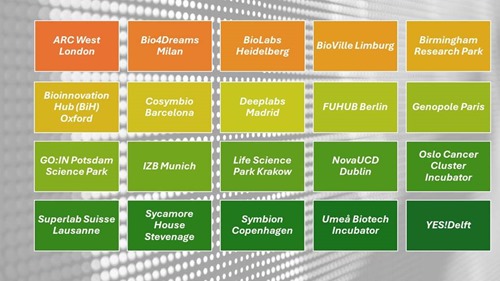
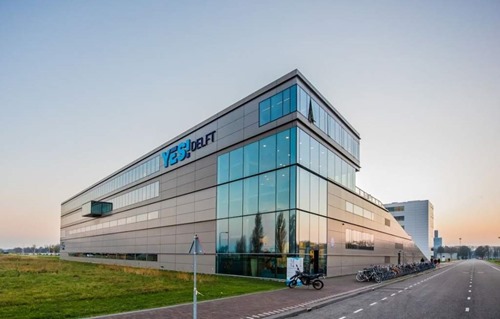
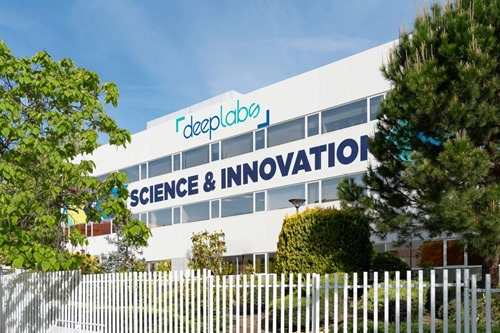
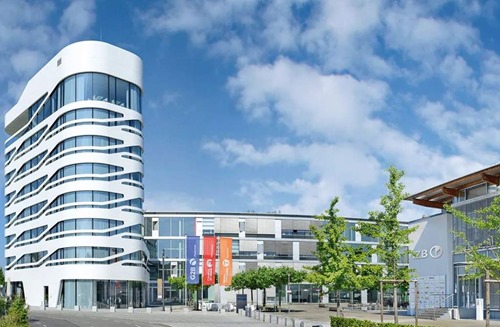
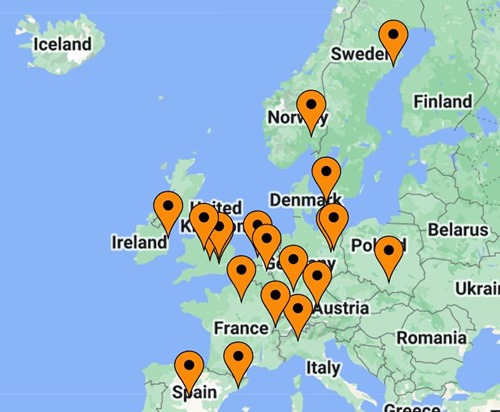
/canvascolor(0xffffffff)/Jinnovation_Park_logo.png)
/canvascolor(0xffffffff)/2025_02_18_China_Nanjing_Gulou_Hi-Tech_Industrial_Devt_Zone.png)
/canvascolor(0xffffffff)/MemberLogo-5506-5906.jpg)
/canvascolor(0xffffffff)/2021_03_17_China_Zhongguancun_Science_City.png)
/canvascolor(0xffffffff)/2023_10_23_Sweden_Sandbacka_SP.jpg)
/canvascolor(0xffffffff)/logo_EN_-_Science_Park_UA_1.png)
/canvascolor(0xffffffff)/MemberLogo-5673-6109.jpg)
/canvascolor(0xffffffff)/MemberLogo-19705-6247.png)
/canvascolor(0xffffffff)/GPNT_logo_RGB_EN_1.png)
/canvascolor(0xffffffff)/PCT_VILLA_CLARA.png)
/canvascolor(0xffffffff)/MemberLogo-54503-6263.jpg)
/canvascolor(0xffffffff)/logo_21.png)
/canvascolor(0xffffffff)/2019_06_12_Taiwan_Hsinchu_SP.JPG)
/canvascolor(0xffffffff)/2020_09_09_Sweden_Luleea_SP.png)
/canvascolor(0xffffffff)/Logo_ZEDE_Color_1.jpg)
/canvascolor(0xffffffff)/2024_06_03_France_Technopole_de_la_R_union.jpg)
/canvascolor(0xffffffff)/2017_07_31_PITA.jpg)
/canvascolor(0xffffffff)/2024_03_01_Brazil_PCT_Sao_Jose_Dos_Campos.jpg)
/canvascolor(0xffffffff)/House_of_BioHealth.png)
/canvascolor(0xffffffff)/2017_11_13_UK_Coventry_Science_Park.jpg)
/canvascolor(0xffffffff)/NSTP_Logo-1_(002).png)
/canvascolor(0xffffffff)/2025_11_04_Saudi_Arabia_Dhahran_Techno_Valley.png)
/canvascolor(0xffffffff)/business-incubator-logo.png)
/canvascolor(0xffffffff)/2017_11_03_Spain_PT_de_Asturias.jpg)
/canvascolor(0xffffffff)/MemberLogo-68701-6096.jpg)
